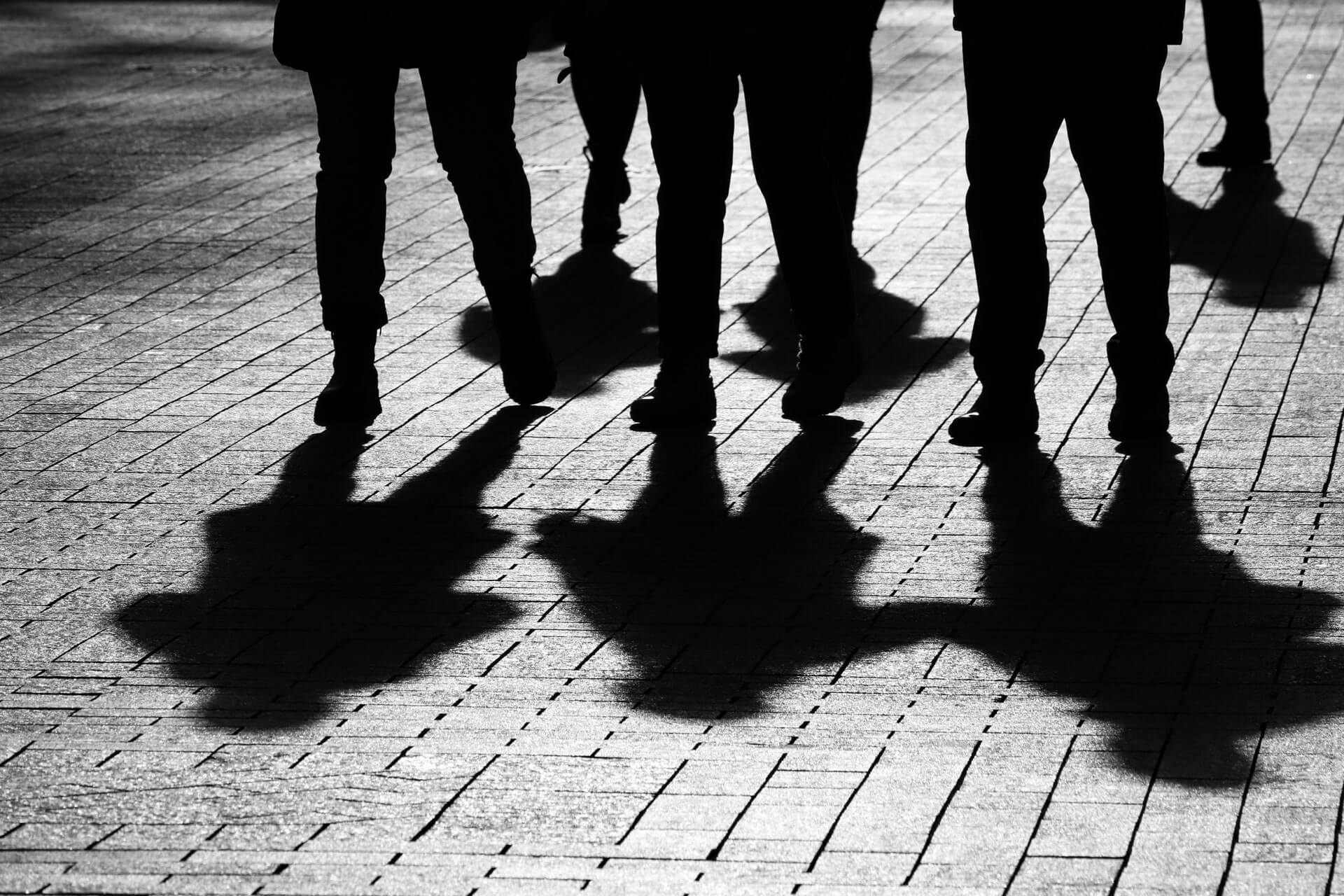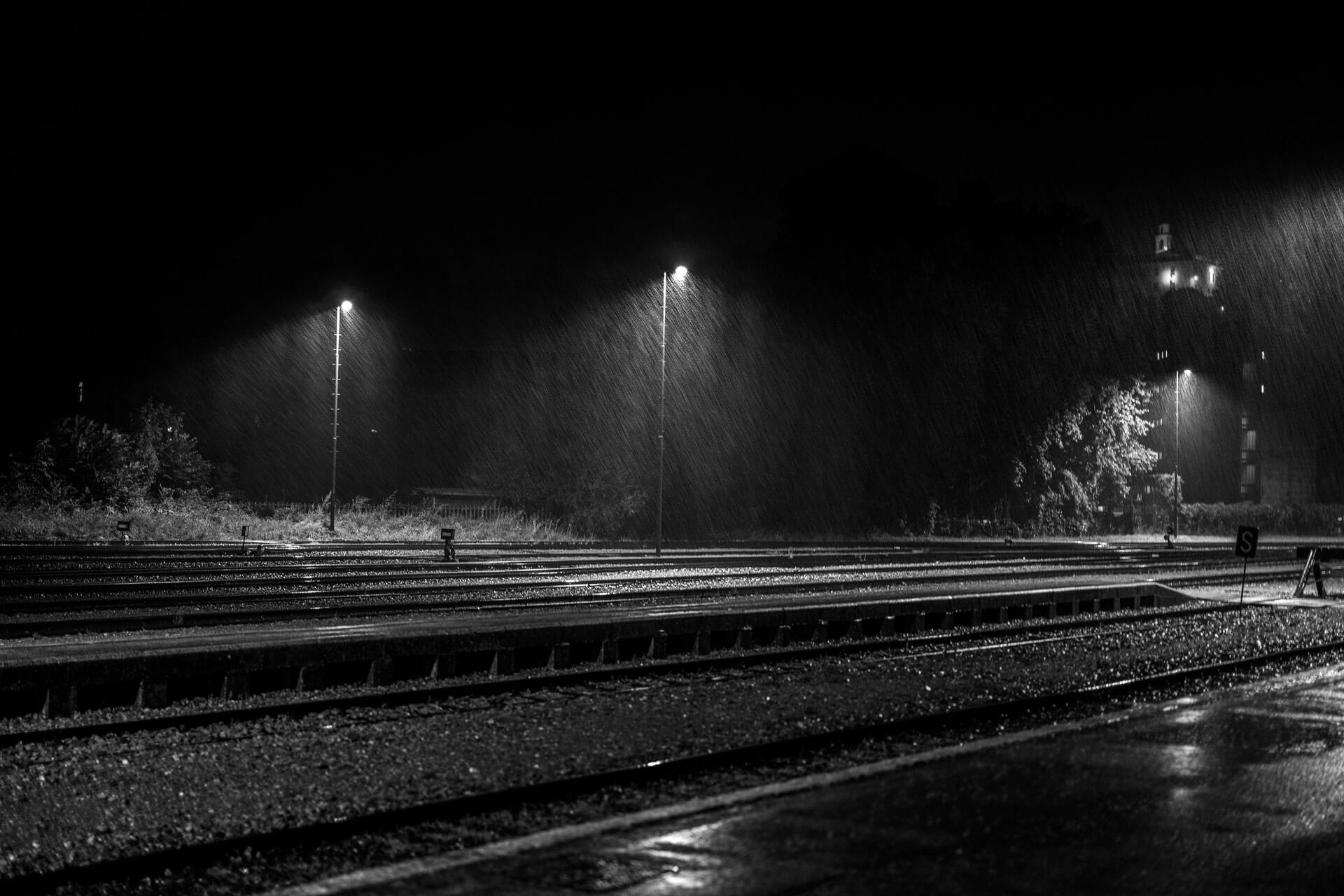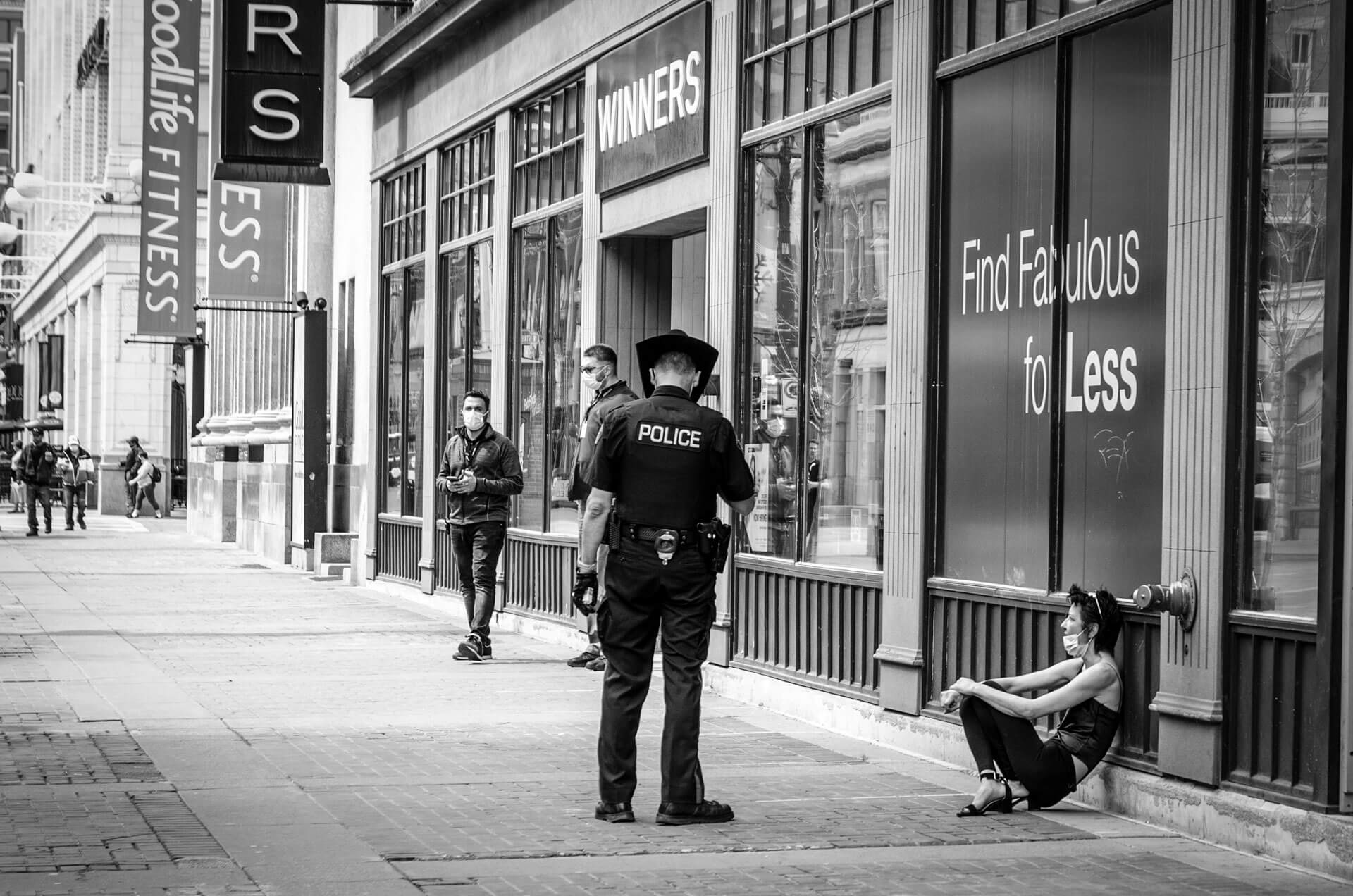Athabasca University sociology grad proves it's 'never too late' to pursue learning, no matter the obstacles
Trigger warning: addiction, suicide, death
Editor's note: Names in this story have been changed at the graduate's request, and in keeping with Alcoholics Anonymous practices.
Toby Payne (Bachelor of Arts, Sociology Major '23) was two years into treatment for drug and alcohol addiction when he made one of the most important decisions of his life.
He was sitting in the main office of Simon House, a residential alcohol and drug addiction treatment centre in Calgary. It was his fourth attempt to get clean and sober after years of relapses, run-ins with the police, homelessness, and even a month-long stay in a psych ward.
Across the room was a poster of happy, smiling people advertising something called "Never too Late." Run by a Catholic community agency, the education program helps Calgarians earn their high school equivalency through night courses.
To that point, sobriety had been Payne's sole focus, a true life-and-death struggle. Studying that poster, he wanted to prove he's capable of more.
Everybody thinks, 'OK, just sober up' and that's it," he says. "That's the whole premise: sober up and survive. But the thing is, the bar can go much higher.
Toby Payne (Bachelor of Arts, Sociology Major ’23)

Struggle for sobriety
In the eight years since, Payne has proved a lot—to himself and those he cares about. Not only did he get his high school equivalency, he followed it up with a diploma in human services. He met the love of his life and her two children, celebrated the birth of their son, and studied sociology at Athabasca University (AU). Just a few weeks before AU convocation, he started a new job as a research coordinator at the University of Calgary.
"From rags to riches," he laughs.
A happy childhood
From the outside, Payne's journey from darkness was just as unexpected as his journey into it. Originally from Victoria, B.C., he came from a loving family. His mother was Norwegian and his stepfather was Danish. The family moved back and forth between Victoria and Denmark because his parents thought the experience of living in Europe would be good for the children.
"I had a great childhood," he says.
But the frequent moves contributed to a lack of stability that started to impact his education. Payne says school had always been a struggle but when the family moved to Calgary for good when he was in Grade 9, everything snowballed.
I felt behind and stupid because I couldn't keep up. And I was always too scared to ask questions.
Toby Payne (Bachelor of Arts, Sociology Major ’23)

Falling into the wrong crowd
After his sister had some troubles at the local public high school, Payne's mom decided to put him in a private Christian school, away from his friends. He rebelled by hanging out with "bad influences," and experimenting with alcohol and drugs.
That's also when the violence started. There were fights with students from the neighbouring school—serious ones that sometimes involved machetes.
"I was getting jumped all the time."
When the rival students learned where Payne lived, he started to fear for his life. So at age 17, he dropped out of school and moved out on his own.
Without a high school diploma, he got a job as a dishwasher. Working in the restaurant industry—which he says has a well-deserved reputation for boozing and drug abuse-only fuelled his habits. He drank and smoked weed "every single night."
Recreational use turned into an addiction. "I would drink when I didn't want to drink, smoke when I didn't want to smoke. That's where it all started."
Family trauma
At the same time, Payne's family life started to fall apart. His mother had been diagnosed with multiple system atrophy, a rare and fatal disorder of the nervous system that affects muscle control and movement.
Payne's drinking ramped up with each passing year-half a bottle of vodka in the early days to a full bottle. He wasn't just drinking on the job, but in the morning before work to "level off from the night before."
Once he started getting into cocaine, life truly started to spiral. Unable to pay rent, he'd bounce between his mom's and sister's places. When his family had enough of his antics, he stayed at the Calgary Drop-in Centre, a homeless shelter downtown. But as his addictions continued to take over, his thoughts turned even darker, to suicide.

Dark night on the train tracks
On a cold winter evening, Payne was at his lowest on the train tracks in downtown Calgary when 2 peace officers happened by. He asked for help and was admitted into the psych ward at the South Health Campus where he would stay for about a month.
"It was honestly one of the best days," he says of that decision to seek help. "It felt safe and that's all I wanted."
But as would be the case throughout his 20s, he relapsed not just once but several times. One of those relapses was precipitated by the death of his sister, whose battle with schizophrenia ended tragically in suicide.
"It fuelled my alcoholism and addiction."

Run-ins with the law
Payne resorted to crime to pay for his addictions, including the time he broke into a liquor store to steal booze. While wandering the streets afterward, he spotted a car that was idling while its owner waited for it to warm up. He decided to steal it.
Police eventually found him, and Payne suffered a broken rib and teeth during his arrest. When released, he ended up sleeping side by side other homeless Calgarians on floor mats in the drop-in centre. Perhaps his lowest point was when he sold his watch and phone to buy drugs for 1 last high.
"Once that was all gone, I had nothing left to offer."
With a court date looming, Payne decided to return to Alcoholics Anonymous, and he eventually met a Simon House employee who offered to drive him to the centre. That's when life started to turn around.

An educational spark
Payne was a year into treatment and tired of life in restaurant kitchens when he decided to go for his high school equivalency, which he earned in 2015. Buoyed by that success, he enrolled in open studies at a local college before deciding to major in human services at Columbia College.
At around the same time, he met his future fiancée, Rana Naser who was volunteering at Simon House, where Payne now worked part time.
Influenced by Naser's recommendation of AU-she was nearing the end of her bachelor's program at the university-and wanting a greater challenge academically, he decided to pursue a degree in sociology. He had taken an intro course back in college and "it just clicked."
2 university students, 1 newborn, 2 teens
Payne was about six months into his studies at AU when the couple celebrated the birth of their son and the expansion of their family, which also included Naser's two children. Everyone talks about how becoming a parent is life-changing, but he was completely taken aback.
"I've never felt loved like I have with my son."
Balancing a relationship and busy household with an infant and two teens, and two parents enrolled in online university-Naser was in her master's program at that point-was "beyond any other challenges I've been through," Payne says.
But AU provided the flexibility that made it possible to not only manage his own degree it allowed his fiancée to finish her master's and, now, pursue a doctorate.
"If it wasn't for AU, we wouldn't have been able to do what we just did-and what we are still currently doing," he says.

Higher pursuits
Those hectic days and long nights are already paying off. Next January, he'll return to AU as a grad student in the Master of Arts - Interdisciplinary Studies program.
He's also working in his field, recently joining a large national study on healthy aging. Working from a lab at the U of C's health campus is a stark contrast compared to those cold nights on the floor of the drop-in centre.
In telling his story, Payne says he hopes others can understand it really is never too late to conquer their fears and strive for more.
"I was riddled with fears and insecurities and battling internal demons about not being good enough, but I knew that if I didn't conquer these fears, I was going to inevitably relapse and fail," he says.
"You can't listen to the negative voices. You are smart enough."

Convocation 2023
Read more stories about AU students and grads as part of our Convocation 2023 coverage.